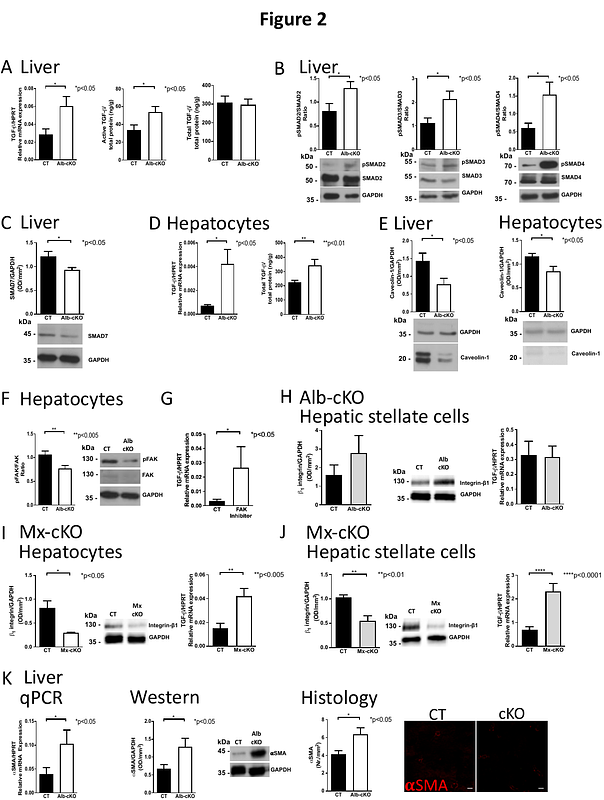Modulation of collagen-binding integrins affects fibroblast activation and inhibits fibrosis

Modulation of collagen-binding integrins affects fibroblast activation and inhibits fibrosis
Hamelmann, S.; Derakhshandeh, F.; Wagner, T.; Uebel, S.; Steigenberger, B.; Basquin, C.; Fabritz, S.; Schroeder-Braunstein, J.; Wabnitz, G.; Nakchbandi, I. A.
AbstractThe extracellular matrix contributes to the progression of several diseases, sometimes by disrupting organ function such as in lung and liver fibrosis. Because integrin receptors mediate cell-matrix interactions, we conditionally deleted {beta}1 integrin in murine hepatocytes in vivo. Increased TGF-{beta} and matrix deposition ensued. Application of a cyclic peptide (GLQGE) that binds to both 10{beta}1 and 11{beta}1 diminished fibrosis in two murine models. In liver fibrosis, TGF-{beta} production was reduced. In lung fibrosis, however, the effect was exclusively due to suppressing fibroblast activation and hence collagen production without TGF-{beta} involvement. In summary, integrin manipulation successfully changed cell behavior, with effects differing depending on the cell type. Importantly, it is possible to directly suppress fibroblast activation and consequently diminish matrix production independent of disease pathogenesis. This underscores the importance of matrix composition in modifying the behavior of embedded cells and hence disease severity.